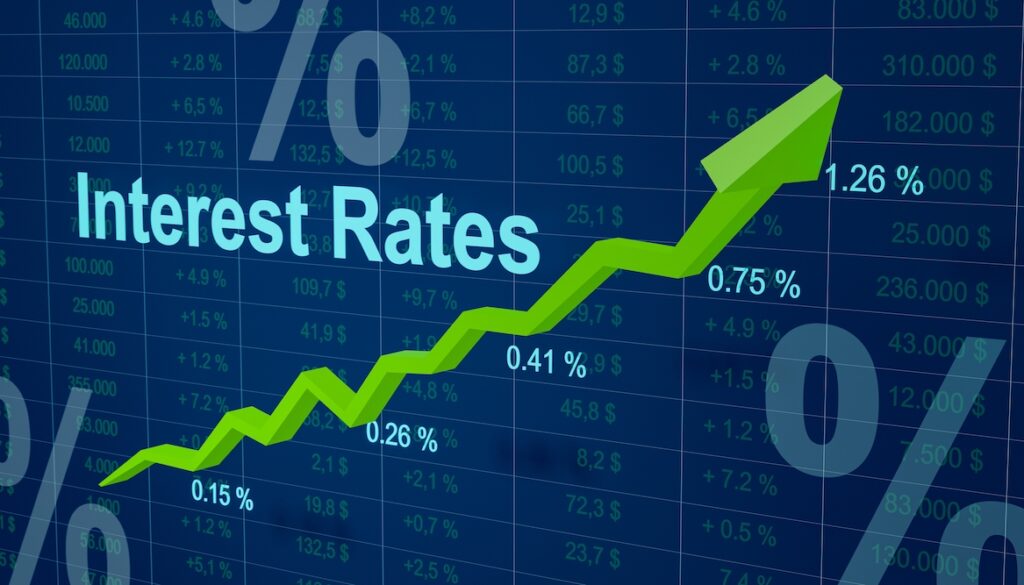You could say that interest rates are on the up and up – not that that’s a good thing for most consumers. Interest rates are certainly a hot topic in the news at the moment, having rapidly risen from record lows to levels not seen since the financial crash of 2008 in the space of just two years. And more increases are set to come.
But understanding how the ups and downs of interest rates affect your money isn’t always easy. The main point most people understand is that the higher interest rates are, the more expensive borrowing becomes, which is not great news for anyone with a mortgage, loans to repay or any other kind of credit.
So why are they going up at all? Here’s a brief run through what is happening with interest rates at the moment, and how you can expect it to affect your finances.
Why are interest rates important?
Interest rates play a crucial role in the economy, affecting everything from borrowing costs for businesses and consumers to the exchange rate. At a macroeconomic level, interest rates are the main lever governments and central banks use to implement monetary policy, which is all about controlling the flow of money in the economy.
How does that work? You might think that having as much cash as possible floating around is a good thing. But it’s all about controlling inflation. A healthy economy depends on maintaining a steady balance between supply and demand.
That balance has been badly upset by the COVID-19 pandemic, amongst other things. Goods have become more scarce, but after two years of their normal lifestyles being severely restricted, a lot of people came out of the pandemic with a lot of spare cash. High demand plus restricted supply equals soaring inflation.
Left to take its own course, rising inflation quickly eats up the surplus in cash sloshing around as people see everyday costs go up, which can end up creating a kind of negative feedback loop – an economic death spiral where people stop being able to spend, so businesses struggle, so supply slumps and prices go up again. And rinse and repeat.
Raising interest rates is a way of breaking out of this cycle. By making credit more expensive, the Bank of England is trying to reduce the amount of money in the economy and so dampen down demand. That in turn should bring down inflation. So yes, increasing the cost of borrowing means pain for ordinary people, particularly as they will already have mortgages and loans and credit cards to pay off. Those payments go up with interest rates.
But it is managed pain to try and prevent even worse happening if the markets are just left to run their wild course.
There is a silver lining. Rising interest rates mean your debts become more expensive, which feels like yet another inflationary burden in the cost of living crisis. But they also make saving money more worthwhile. For years, record low interest rates have meant very poor returns on saving accounts, ISAs etc. It’s been very hard to make your money grow. Now, with higher interest rates, you can offset at least some of the extra cost of borrowing by putting any spare cash you have in a high interest savings account.
If, on the other hand, you are seeing any spare cash you might have had completely squeezed by rising costs and are worried about your ability to pay off your debts, take action now. Talk to our personal finance experts for free, no-obligation advice on what to do to get back on a more stable footing.

